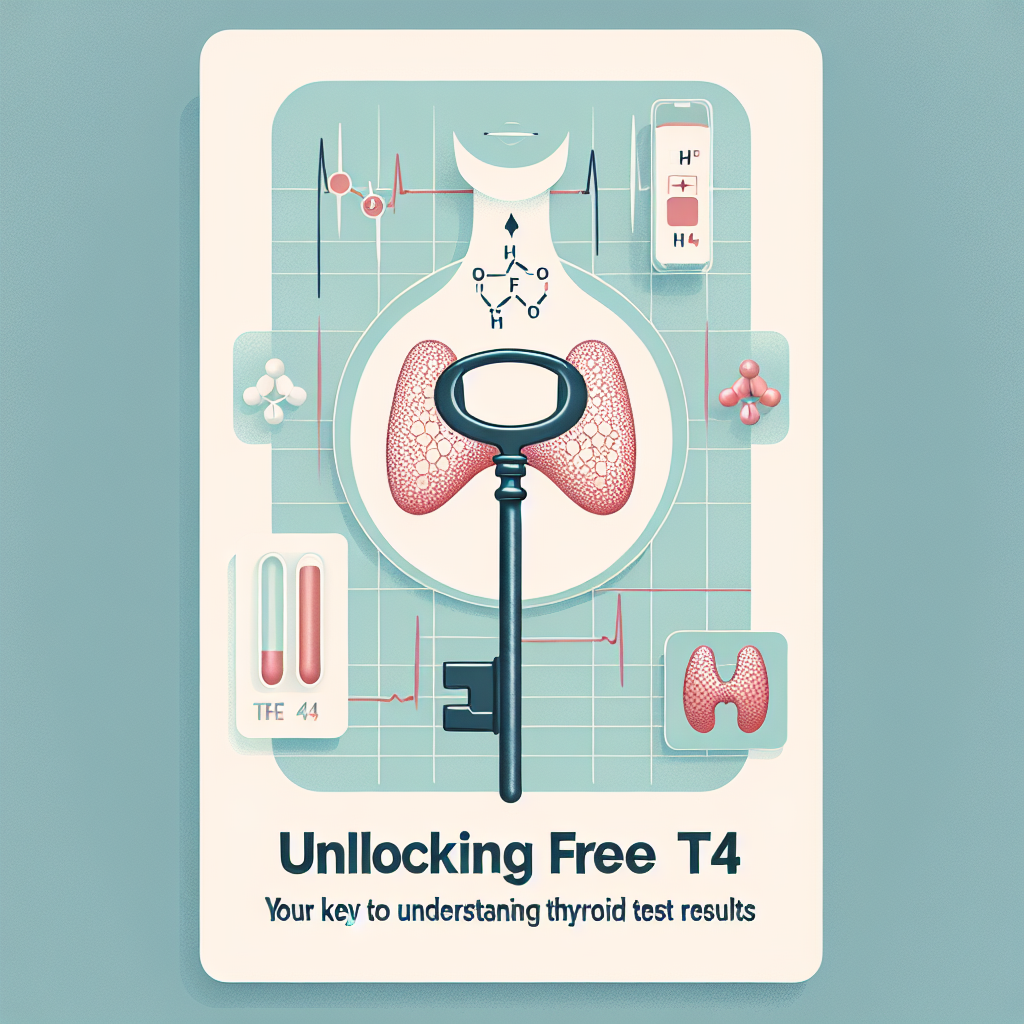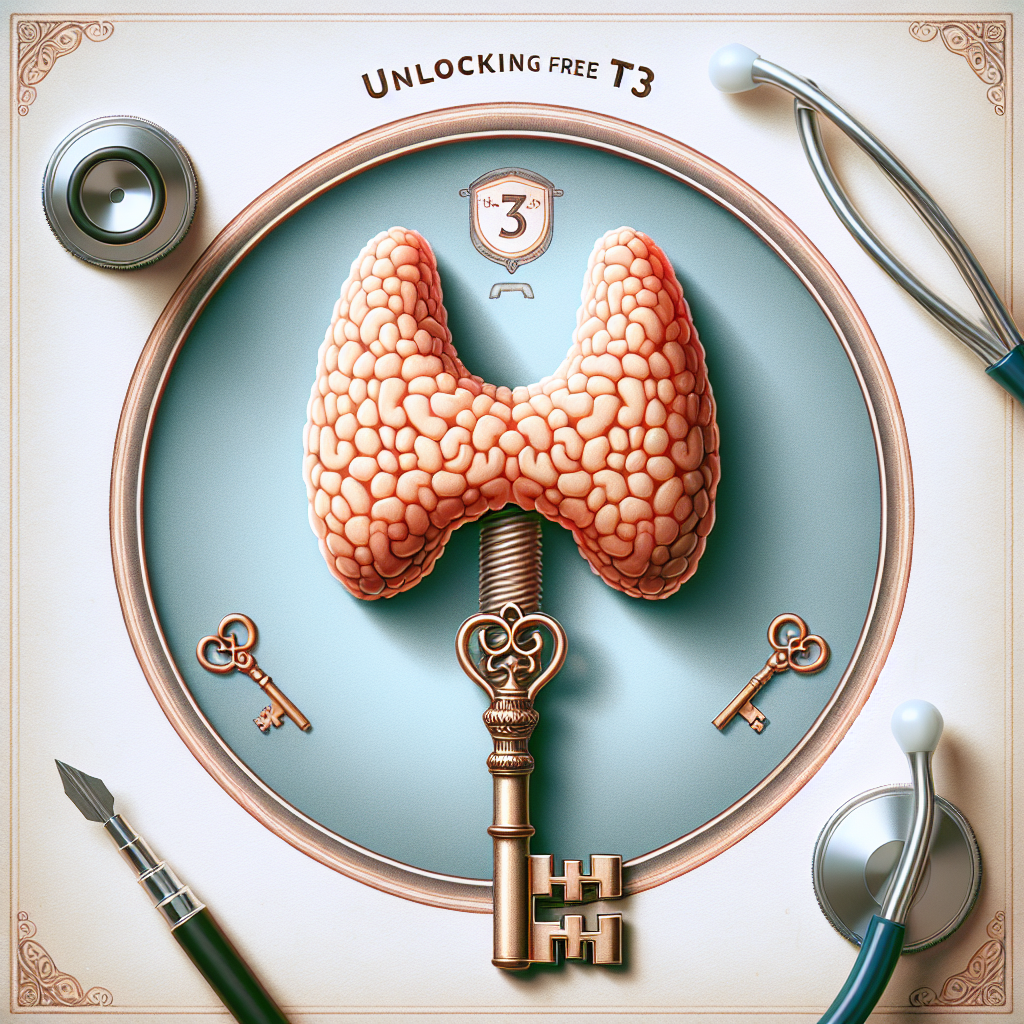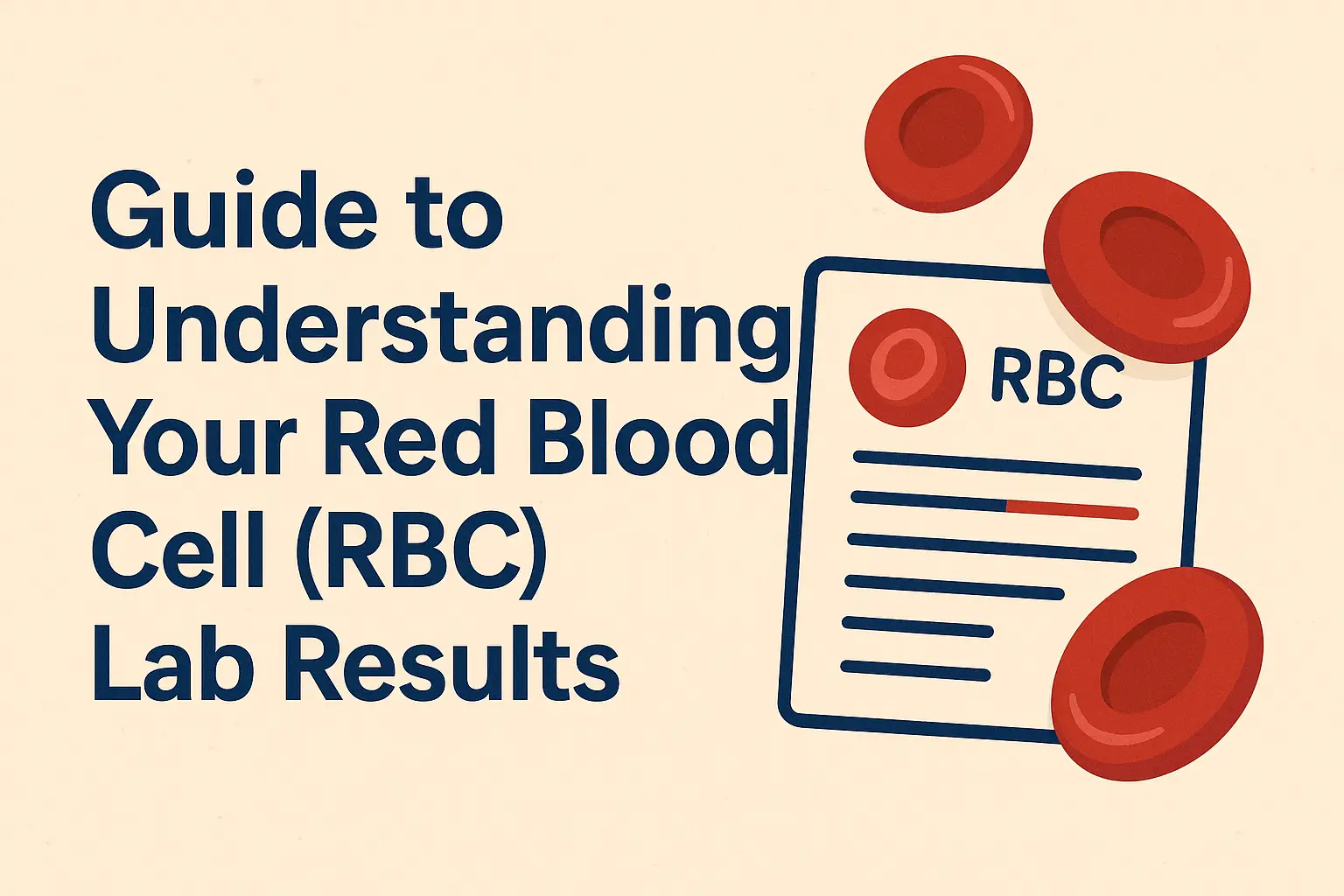If you’ve come across “TBG” on your blood test report and are feeling confused, you’re not alone. TBG, or Thyroxine-Binding Globulin, is an essential protein responsible for transporting thyroid hormones within your body. By grasping the significance of TBG, the reasons it is tested, and the implications of your results, you can more effectively monitor your thyroid health and interpret your lab findings.
What Is Thyroxine-Binding Globulin (TBG)?
Thyroxine-Binding Globulin is a transport protein synthesized by the liver. Its primary function is to bind thyroid hormones—particularly thyroxine (T4) and triiodothyronine (T3)—enabling safe passage through the bloodstream. Over 99% of thyroid hormones are bound to proteins like TBG, leaving only a small fraction of “free” hormones available for the body to utilize in metabolism and energy regulation.
TBG serves a regulatory role, modulating the levels of available thyroid hormones. Changes in TBG concentrations can impact the amount of active hormone received by your organs, making TBG measurements valuable, especially when thyroid test results are ambiguous.
While TBG levels usually remain stable, various factors such as hormonal flux, medications, liver or kidney dysfunction, and illnesses can influence them. When your thyroid panel reveals irregular patterns, evaluating TBG can provide clarity for your diagnosis.
Why Is TBG Testing Important?
Evaluating your TBG levels provides doctors with critical context for assessing overall thyroid function. Without TBG information, total hormone levels might offer misleading insights.
For instance, a high TBG level can elevate total T4 and T3 readings, potentially suggesting hyperthyroidism—unless free hormone levels fall within the expected range. Conversely, low TBG can obscure signs of hypothyroidism if total hormone levels are low, yet free hormone levels remain balanced.
TBG testing is especially pertinent in these circumstances:
- Pregnancy: Estrogen surges during pregnancy raise TBG levels and can skew total thyroid hormone readings, making TBG consideration crucial.
- Hormonal therapies: Both estrogen and androgen-based treatments can alter TBG levels, impacting hormone dosing decisions.
- Liver and kidney conditions: Since these organs produce and regulate TBG, disease can disrupt TBG levels and mislead thyroid function evaluations.
Understanding your TBG results leads to a more accurate assessment of your thyroid health and supports personalized treatment strategies.
How to Read and Understand Your TBG Blood Test
Your TBG test result, usually expressed in mg/L, will typically be compared against a laboratory-specific reference range (generally between 13–30 mg/L in adults). Remember that reference values may slightly vary from lab to lab.
For a thorough thyroid evaluation, TBG should never be interpreted in isolation. Always consider TBG alongside other vital thyroid tests: TSH (Thyroid-Stimulating Hormone), Free T4 (FT4), and Free T3 (FT3).
Here’s a quick reference for reviewing your TBG test results:
- Assess whether your TBG is normal, low, or high.
- Compare with FT4, FT3, and TSH—are they also within the reference range?
- Watch for patterns: High TBG with normal free hormones often indicates a benign hormonal influence rather than a thyroid issue.
- Account for life factors: Pregnancy, oral contraceptives, and hormone therapies can affect TBG levels.
- Consult your healthcare provider: They will help synthesize this information for an accurate diagnosis.
What Conditions Affect TBG Levels?
Abnormal TBG results usually signify an underlying factor rather than a direct illness. Here are causes that can increase or decrease your TBG levels:
Causes of High TBG Levels
Elevated TBG levels result in greater binding of thyroid hormones, often raising your total T4 and T3. Major causes include:
- Increased estrogen levels: This can occur during pregnancy, with estrogen-containing contraceptives, and through hormone treatments.
- Acute liver issues: Temporary liver inflammation (like hepatitis) may lead to heightened TBG levels.
- Rare inherited conditions: Genetic disorders such as acute intermittent porphyria can impact TBG levels.
Causes of Low TBG Levels
Reduced TBG levels often stem from hormonal imbalances, chronic health conditions, or genetic factors. Key contributors include:
- Excess androgens or steroid use: These can inhibit TBG production.
- Nephrotic syndrome: This condition causes TBG (and other proteins) to be lost through urine.
- Severe liver disease: Diminished protein synthesis leads to lower TBG levels.
- Inherited TBG deficiency: This genetic condition commonly affects males due to its X-linked inheritance.
When Should You Consult a Doctor?
Unusual TBG results aren’t necessarily alarming, but it’s prudent to discuss them with your doctor, especially if you are experiencing other symptoms.
Indicators for Consulting an Endocrinologist
Make an appointment if:
- You experience persistent fatigue, weight fluctuations, palpitations, or other signs of thyroid dysfunction alongside abnormal TBG values.
- Your TSH or free hormone tests also fall outside normal ranges.
- The changes in your TBG levels cannot be easily explained by evident factors, such as medication or pregnancy.
If the only issue is a minor alteration in TBG with otherwise normal lab values and absence of symptoms, your doctor may decide to monitor your results over time.
Tips for Promoting Healthy Thyroid Function
While lifestyle changes can’t directly alter TBG levels, adopting these habits can foster overall thyroid health:
- Consume iodine and selenium-rich foods—such as fish, eggs, dairy, and Brazil nuts—to aid in thyroid hormone production.
- Manage stress: Chronic stress can disrupt hormonal balance.
- Remain physically active: Regular exercise helps regulate metabolism.
- Inform your healthcare team about your thyroid status prior to starting any new medications.
Frequently Asked Questions About TBG
How Do Medications Impact TBG Levels?
Certain medications can significantly influence TBG levels:
- Estrogens (found in birth control or hormone therapy) can elevate TBG levels.
- Some anticonvulsants, such as carbamazepine, may lower TBG levels by enhancing its breakdown.
Is TBG Deficiency Gender-Specific?
Yes—since the TBG gene is located on the X chromosome, males (with one X chromosome) may experience complete deficiency if the gene is affected. Females (with two X chromosomes) may only exhibit partial deficiency or no symptoms due to compensation from the unaffected X chromosome.
Does Hypothermia Affect TBG?
Indeed. Exposure to cold or medically induced hypothermia strengthens the bond between TBG and thyroid hormones, reducing the free hormone available and slowing metabolic processes—even when total hormone levels appear normal.
Is the TBG/Total T4 Ratio Clinically Relevant?
This ratio can sometimes aid in complex or unclear thyroid cases to determine if TBG is fully saturated, though it is not typically included in routine thyroid assessments.
Do Cruciferous Vegetables Influence TBG Levels?
No—vegetables like broccoli and cabbage may affect iodine metabolism in large quantities, but they do not have a direct effect on TBG levels.
Additional Reading & Resources
- Inherited TBG Deficiency (MedlinePlus)
- Comprehensive Guide to Blood Markers
Need Help Interpreting Your Blood Test Results?
For personalized, clear interpretations of your lab results, check out BloodSense. This online resource offers quick and understandable insights, empowering you to take control of your health confidently.







